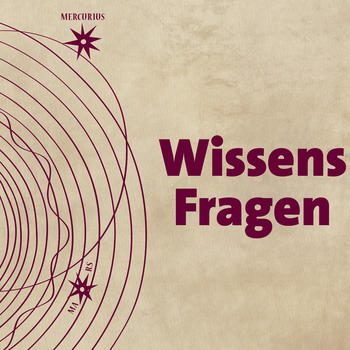Otto Zwartjes, Université Paris-Cité – Laboratoire d’Histoire des théories linguistiques: „Missionary linguistic documentation and early modern circulation of ideas in a global perspective“
Ein Vortrag der Veranstaltungsreihe "WissensFragen. Der SFB 980 im Gespräch mit ..."
During the age of the great discoveries, missionaries arrived in the newly discovered territories and started to learn, document and describe the local languages with different purposes. In the first place, they needed to communicate with the people in the context of the church, conversion, and later, after conversion, to hear confessions and to preach the faith in the local language. These missionaries did pioneering work, seen in the context of the history of linguistics, since they had to describe hitherto unknown features of languages never studied by westerners before. They started to develop a more appropriate, refined and adapted framework for their linguistic descriptions in order to describe the unkown and complex sound systems and the structures of these languages. They were often impressed by the great linguistic diversity; language could be so much more complex than Latin or Greek, seen from a morphological persepctive, but they also discovered that there were also languages that did not share any morphological property with European languages.
Some missionaries apparently did not focus on the acquisition of the necessary skills for daily communication only, and started to write their “encyclopaedia-like” dictionaries, which often are huge compilations containing information on history, anthropology, sociology, religion, philosophy, botany, geography and many other fields of science. Their written sources were produced in the remote territories outside Europe and often did not reach the academic circles in Europe (mainly the works written in the Philippines and the Americas), but in other cases, mainly works related to China and Japan, reached Europe where they soon became an important field of research, which led to the publication of a great number of works on Asia in Europe, written by these pioneering missionaries.
This presentation concentrates on the circulation of ideas derived from missionary sources from the 16th to the 18th century. Not only some linguistic ideas and approaches of missionaries to linguistic diversity will be discussed, but also – seen in a broader context – their contribution to the history of Human Sciences generally.
Zeit & Ort
29.04.2022 | 10:00 c.t.
Freie Universität Berlin
Villa des SFB Episteme in Bewegung
Schwendenerstraße 8
14195 Berlin-Dahlem
Weitere Informationen
Die Veranstaltung findet voraussichtlich in einem hybriden Format statt. Nicht-SFB-Mitglieder melden sich bitte bei Interesse unter info@sfb-episteme.de an und bekommen dann einen Zugangslink zugeschickt.


